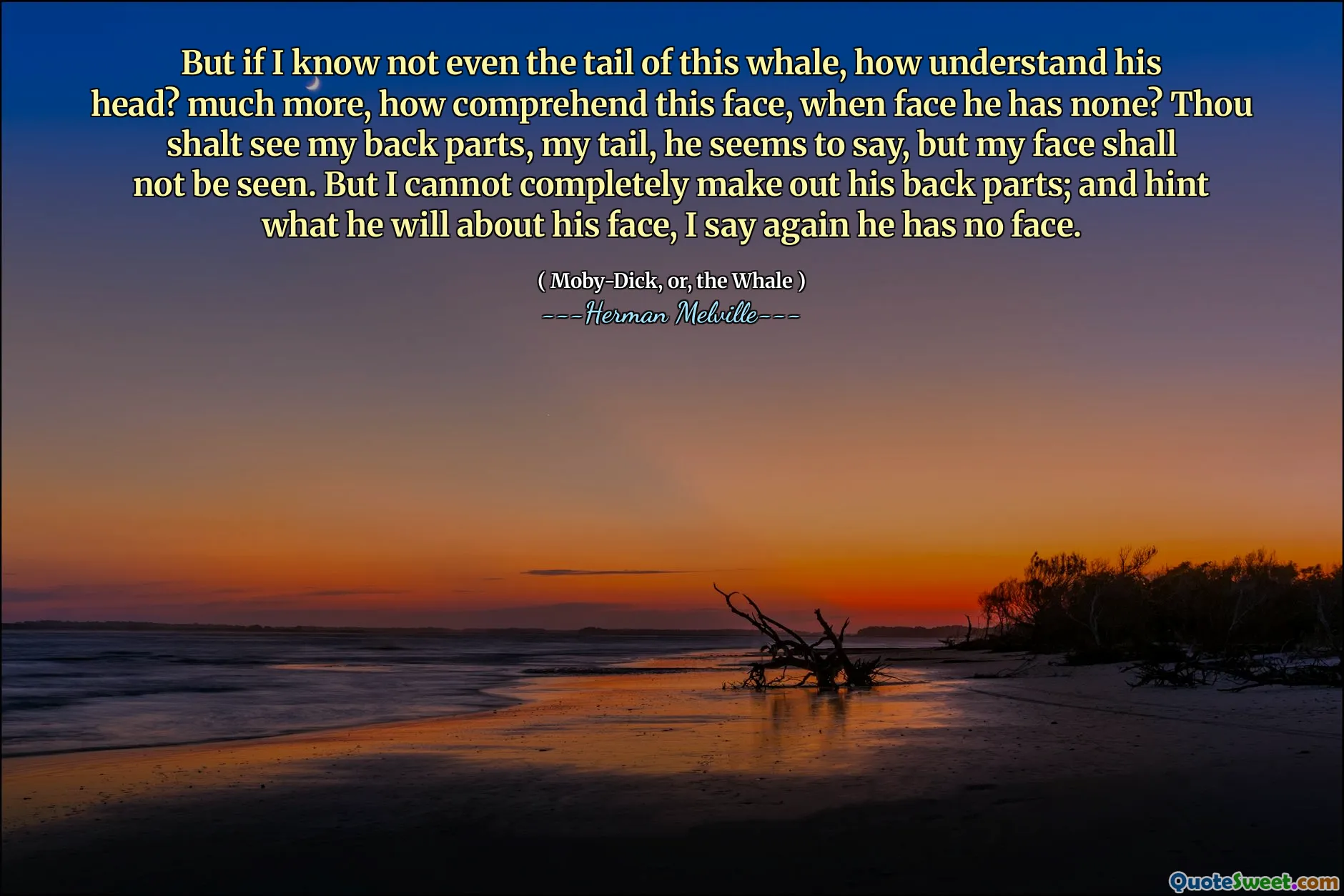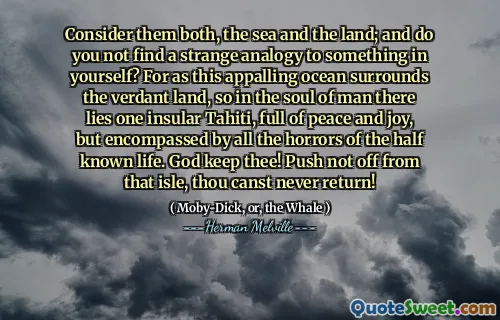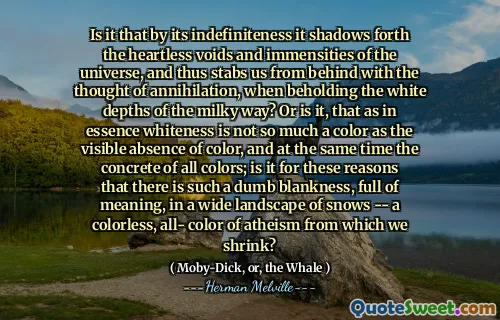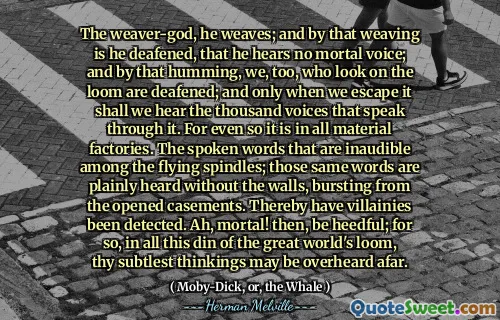
But if I know not even the tail of this whale, how understand his head? much more, how comprehend this face, when face he has none? Thou shalt see my back parts, my tail, he seems to say, but my face shall not be seen. But I cannot completely make out his back parts; and hint what he will about his face, I say again he has no face.
In the excerpt from "Moby-Dick," the narrator grapples with the profound mystery of the whale, expressing a sense of ineptitude in understanding its essence. The whale's elusive nature symbolizes deeper existential questions, highlighting the struggle of grasping something so vast and enigmatic. The imagery of knowing only the tail but not the head reflects the limitations of perception and comprehension in facing significant truths.
This contemplation extends to the idea that even glimpsing the whale's back is insufficient. The narrator emphasizes that despite trying to decipher the whale's characteristics, he finds its face hidden, reinforcing the idea that certain aspects of existence remain beyond human understanding. This passage serves to illustrate the complexity of nature and the existential limitations we face in trying to fully know and interpret the world around us.











